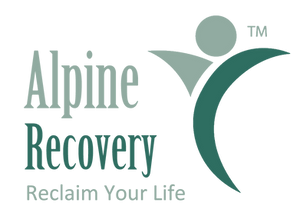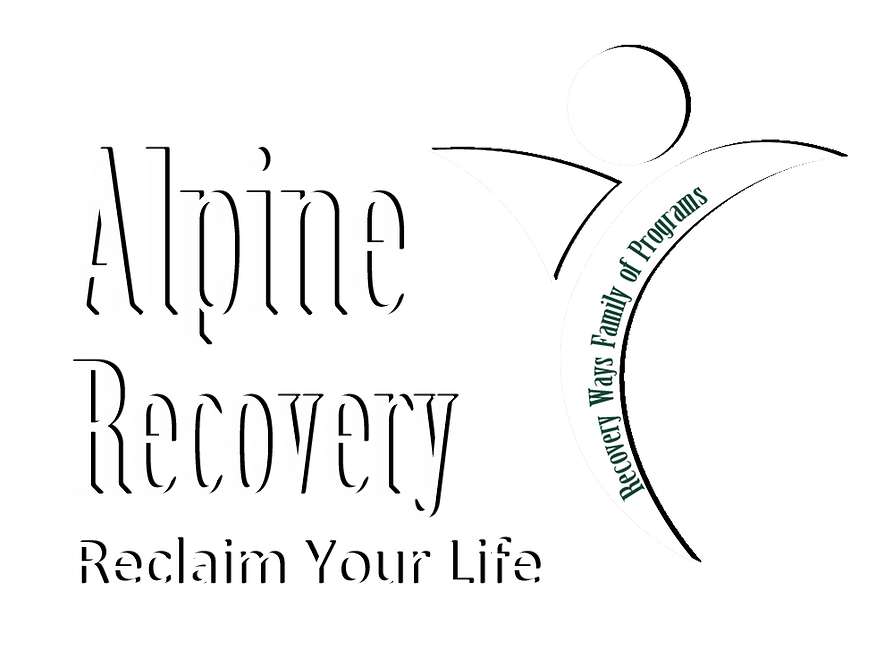
The Importance of Inpatient Drug Rehab
The road to recovery from substance abuse is often complex and challenging, with inpatient drug rehab playing a pivotal role in supporting individuals as they navigate this path. For those seeking treatment at Alpine Recovery in Everett, WA, the focus is on providing a safe, structured environment where healing and recovery can thrive. This approach not only addresses physical addiction but also provides the emotional support necessary for lasting change.
Inpatient drug rehab offers a comprehensive care model that combines medical supervision, therapy, and lifestyle changes. This immersive setting is especially beneficial for individuals dealing with severe or long-standing addiction issues. Through a carefully structured program, residents receive round-the-clock medical attention and a range of therapeutic interventions that cater to their unique needs.
Personalized Care Approach
At Alpine Recovery, the philosophy centers around personalized care that respects the uniqueness of each individual’s recovery journey. Treatment plans are crafted after a thorough assessment, ensuring that every aspect of the patient’s mental, physical, and emotional health is considered. This level of personalization helps foster a stronger sense of responsibility and motivation in clients.
Inpatient drug rehab in Everett, WA, particularly at Alpine, places significant importance on custom treatment plans that may include detoxification, cognitive behavioral therapy, and family counseling. By incorporating family into the recovery process, Alpine Recovery underscores the role of a supportive home environment in achieving long-term sobriety.
Key Benefits of Inpatient Rehab
There are numerous benefits to choosing inpatient drug rehab at facilities like Alpine Recovery. The most significant benefit is the creation of a distraction-free environment where clients can fully focus on their recovery. Away from their usual settings and potential triggers, individuals have the space and time to work on themselves without interruption.
The structured routine provided by inpatient rehab helps individuals develop a healthier lifestyle, which is essential for sustaining long-term recovery. In addition to medical and therapeutic interventions, clients at Alpine Recovery participate in activities designed to improve their physical health, such as exercise programs and nutritional planning.
Moreover, inpatient programs emphasize building a supportive community among participants. This sense of camaraderie is crucial as individuals realize they are not alone in their struggles, thereby encouraging honest expression of their experiences and feelings.
Detoxification Process in Everett
The detoxification process is a critical first step in most inpatient drug rehab programs. At Alpine Recovery, detox is managed by experienced healthcare professionals who ensure that the process is as safe and comfortable as possible. Detox involves clearing the body of addictive substances, a process that can sometimes trigger withdrawal symptoms.
Professional supervision during detox is vital, as withdrawal symptoms can range from mild discomfort to severe medical complications, depending on the substance used. Treatment staff at Alpine Recovery offer medications and therapies designed to mitigate these symptoms and ease the transition into a substance-free lifestyle.
Therapy Options for Recovery
Individual Therapy
Individual therapy sessions are a cornerstone of the inpatient drug rehab experience at Alpine Recovery. Through one-on-one sessions, clients work closely with licensed therapists to identify the root causes of their addiction, develop coping strategies, and set personal goals for recovery. This personalized attention allows for a deeper exploration of underlying issues, fostering significant breakthroughs.
Group Therapy
Group therapy complements individual sessions by providing a platform for shared experiences and mutual support. These sessions encourage open dialogue among clients, enabling them to learn from one another and gain new perspectives on their own recovery. Participation in group therapy boosts confidence and helps foster a sense of community among participants.
Family Counseling
Family involvement is crucial in the recovery process, and Alpine Recovery offers comprehensive family counseling to address relational dynamics that may influence recovery. These sessions educate family members about addiction and recovery, equipping them with the tools to support their loved ones effectively.
Holistic Treatments at Alpine Recovery
In addition to conventional treatment methods, Alpine Recovery incorporates holistic practices aimed at treating the whole person. These treatments include mindfulness exercises, yoga, and guided meditation sessions, all of which help clients achieve emotional balance and mental clarity during their recovery journey.
The emphasis on holistic care helps individuals cultivate self-awareness and mindfulness, both essential components for maintaining sobriety. Clients learn to engage with their surroundings in new ways, promoting a healthier lifestyle that extends beyond their time in inpatient rehab.
Aftercare and Continuing Support
Successful recovery extends beyond the initial inpatient program, and Alpine Recovery places significant importance on aftercare planning. Aftercare includes structured support systems and resources to assist clients as they transition back to everyday life, ensuring they have the tools and assistance required to remain substance-free.
Continuing care may involve outpatient programs, ongoing therapy, or participation in support groups. Alpine Recovery’s commitment to its clients is reflected in its dedication to providing long-term support, which is essential for preventing relapse and maintaining a healthier, addiction-free life.
Costs and Insurance Coverage
Understanding the financial aspects of inpatient drug rehab is crucial for those seeking treatment. At Alpine Recovery, efforts are made to work with clients and their insurance providers to ensure that financial obstacles do not impede access to care. Various insurance plans may cover a portion or all treatment costs, but it’s essential to verify specific coverage details with the provider.
- Consult with insurance providers about specific coverage options.
- Discuss payment plans and financial assistance with the admissions team.
- Explore potential external funding or grant opportunities for rehab.
Choosing the Right Rehab Facility
Determining the best fit for inpatient drug rehab in Everett, WA, involves careful consideration of various factors. Prospective clients should weigh the types of therapies offered, the staff’s expertise, and the facility’s environment. At Alpine Recovery, the welcoming atmosphere and experienced professionals set a strong foundation for those seeking comprehensive care.
When evaluating a rehab center, it’s crucial to consider the range of support services available, including medical care, emotional and psychological support, and post-treatment planning. An ideal facility fosters a nurturing environment that aligns with the client’s personal recovery goals, ensuring a higher likelihood of success.
Impact on the Community
Inpatient drug rehab facilities like Alpine Recovery not only transform individual lives but also have a profound impact on the broader community. By providing effective treatment, they contribute to reducing substance abuse-related problems in the community, such as crime and homelessness. Successful rehabilitation supports healthier community dynamics and enhances overall public safety.
Furthermore, awareness and education initiatives at Alpine Recovery help destigmatize addiction, fostering a more supportive environment for those in recovery. This positive ripple effect extends to schools, workplaces, and social circles, promoting greater understanding and empathy for individuals battling addiction.

How long do you stay in inpatient rehab?
The length of stay in inpatient rehab can vary significantly based on individual needs, treatment goals, and the severity of the addiction. At Alpine Recovery, the typical duration ranges from 28 days to several months. This flexibility is crucial because it allows treatment plans to be tailored specifically to the client’s progress and circumstances.
For some, a short-term 28-day program might be sufficient, especially if they have a strong support system and less severe addiction issues. However, others may benefit from extended care, which can provide a more in-depth focus on addressing the underlying causes of addiction and building resilience against relapse.
It’s important to discuss with healthcare professionals to determine the most appropriate duration for one’s unique situation.
Is inpatient treatment worth it?
Inpatient treatment is often considered highly effective, particularly for individuals with severe addictions or those who have repeatedly tried outpatient programs without success. At Alpine Recovery, inpatient care provides the intensive support and structured environment necessary to break the cycle of addiction.
The immersive setting minimizes distractions and triggers, offering a protected space for clients to focus entirely on their recovery. Additionally, 24/7 medical supervision ensures that any medical complications or withdrawal symptoms are managed promptly and safely.
The value of inpatient treatment lies not only in the immediate support provided but also in the foundation it lays for long-term recovery, making it a prudent choice for many seeking lasting change.
What do they do in inpatient rehab?
Inpatient rehab at Alpine Recovery involves a comprehensive regimen that includes medical detox, individual and group therapy sessions, holistic practices, and lifestyle planning. Upon arrival, clients undergo an assessment to design a personalized treatment plan that addresses their specific needs.
Daily schedules often include structured therapy sessions such as cognitive behavioral therapy (CBT) and family counseling, complemented by activities that promote physical wellness and emotional healing. These may involve exercise programs, nutritional guidance, and mindfulness practices like yoga and meditation.
By engaging in such a holistic and integrated approach, clients are equipped with the skills needed to maintain sobriety and a healthier lifestyle.
Is inpatient the same as rehab?
While the terms “inpatient” and “rehab” are often used interchangeably, they have distinct meanings. “Rehab” is short for rehabilitation and refers to the broader process of recovering from addiction. It encompasses various modalities, including inpatient and outpatient treatments.
Inpatient rehab, specifically, is a type of treatment where individuals reside at the facility for a designated period. This contrasts with outpatient rehab, where clients receive treatment while continuing to live at home. A key advantage of inpatient care at Alpine Recovery is the opportunity for clients to immerse themselves in a supportive environment, away from the distractions and triggers of daily life.
This level of focus is particularly beneficial for those struggling with severe addictions or co-occurring mental health issues.
What role does family play in the recovery process?
Family plays a critical role in the recovery process at Alpine Recovery. Involving family members in therapy sessions can help repair strained relationships and foster a supportive environment conducive to recovery. Family counseling addresses the dynamics that may have contributed to the addiction and equips family members with the skills to support their loved one’s journey.
By educating families about addiction and recovery, Alpine Recovery ensures that clients have a stable support system once they transition back into everyday life. This connection can significantly enhance motivation and commitment to sobriety.
Consider how engaging with family during recovery has positively influenced others, and think about the potential benefits it could offer in your situation.
How does Alpine Recovery prepare clients for life after rehab?
Alpine Recovery places a strong emphasis on aftercare planning to ensure that clients are well-prepared for life after rehab. This includes helping clients develop a structured plan for continuing support through outpatient programs, therapy, and support groups that align with their individual needs and lifestyle.
By providing ongoing access to resources and support networks, Alpine Recovery helps to create a buffer against potential relapse triggers and challenges. Clients are encouraged to integrate the skills learned during inpatient care into their daily routines, fostering resilience and independence.
Reflect on the importance of having a solid plan for post-rehab and how it can make the transition smoother and more sustainable for long-term sobriety.
Resources
- Substance Abuse and Mental Health Services Administration (SAMHSA) – SAMHSA is a government organization that leads public health efforts to advance the behavioral health of the nation.
- National Institute on Drug Abuse (NIDA) – NIDA is a research-focused organization dedicated to addressing the health effects of drug abuse and addiction.
- National Alliance on Mental Illness (NAMI) – NAMI is a nonprofit organization that provides support and education for individuals and families affected by mental illness.
- Centers for Disease Control and Prevention (CDC) – The CDC is a leading national public health institute working to protect public health and safety through the control and prevention of disease, injury, and disability.
- National Institutes of Health (NIH) – NIH is the primary agency for conducting and supporting medical research, including research on drug abuse and addiction.


